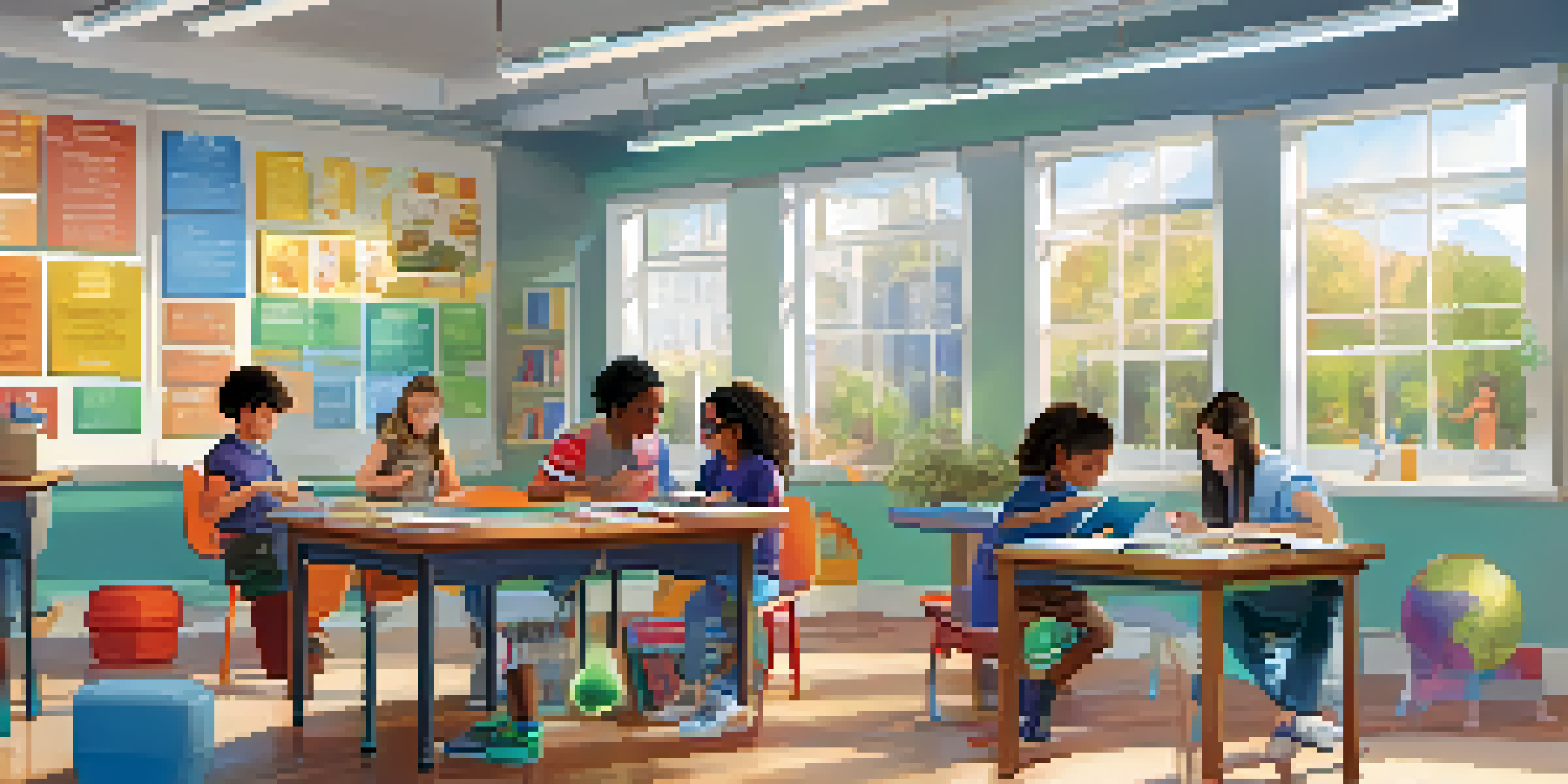The Importance of Feedback in Personalized Learning Systems

What is Personalized Learning and Why It Matters
Personalized learning tailors education to meet individual student needs, preferences, and strengths. This approach recognizes that each learner is unique, promoting engagement and motivation. By focusing on personal goals and learning styles, personalized learning ensures that students are more likely to succeed.
Feedback is the breakfast of champions.
The flexibility inherent in personalized learning allows educators to adapt their teaching methods and materials. For instance, one student might thrive with hands-on activities, while another excels in traditional reading assignments. This adaptability creates a more inclusive environment where all students can flourish.
Ultimately, personalized learning is about creating a pathway for every student to reach their full potential. When students feel that their unique needs are being met, they are more likely to take ownership of their learning journey.
The Role of Feedback in Learning
Feedback is vital in the learning process; it acts as a guide, helping students understand their progress. When learners receive constructive feedback, they can identify areas for improvement and gain insights into their strengths. This ongoing dialogue between students and educators fosters a growth mindset.

Imagine feedback as a compass for students navigating their educational journey. Without it, they might wander aimlessly, unsure of their direction or how to reach their destination. With clear feedback, learners can adjust their course and make informed decisions about their next steps.
Personalized Learning Enhances Success
Personalized learning tailors education to individual student needs, fostering engagement and motivation for better outcomes.
Moreover, effective feedback encourages self-reflection. By regularly assessing their performance and understanding the rationale behind feedback, students become more autonomous learners who take charge of their educational experience.
Types of Feedback in Personalized Learning Systems
Feedback can come in various forms, from verbal comments and written critiques to digital assessments and peer reviews. Each type offers unique benefits tailored to different learning contexts. For example, immediate feedback during a lesson can help students grasp concepts in real-time.
What we learn with pleasure we never forget.
In personalized learning systems, formative feedback—provided throughout the learning process—is particularly valuable. This contrasts with summative feedback, which evaluates overall performance at the end of a unit. Formative feedback allows for adjustments and continuous improvement, keeping the learning journey dynamic and engaging.
Peer feedback is also an essential component, encouraging collaboration and communication among students. When learners review each other’s work, they not only gain new perspectives but also reinforce their understanding of the subject matter.
Creating a Feedback-Rich Environment
For feedback to be effective, educators must cultivate an environment where students feel safe to take risks. When students know that their contributions are valued, they are more likely to engage openly with feedback. This psychological safety fosters resilience and encourages a willingness to learn from mistakes.
In a feedback-rich classroom, ongoing communication between teachers and students is key. Regular check-ins, discussions, and feedback sessions help to build trust and rapport. This relationship enhances the overall learning experience, making it more collaborative and supportive.
Timely Feedback Boosts Learning
Receiving feedback promptly allows students to make quick adjustments, reinforcing their understanding and enhancing performance.
Additionally, incorporating technology can facilitate a feedback-rich environment. Tools like learning management systems and educational apps can provide instant feedback, making the process more efficient and accessible for both students and educators.
The Impact of Timely Feedback on Learning Outcomes
Timeliness is crucial when it comes to feedback. Research shows that students who receive prompt feedback are more likely to retain information and improve their performance. Immediate insights allow learners to make quick adjustments, reinforcing their understanding and skills.
Consider the difference between receiving feedback on a project weeks later versus right after submission. The latter scenario allows students to connect the feedback to their work effectively, enhancing their learning experience. Timely feedback creates a sense of urgency and relevance that drives motivation.
Furthermore, timely feedback helps educators gauge the effectiveness of their teaching strategies. By observing how students respond to feedback, teachers can refine their approaches, ensuring that they meet the diverse needs of their learners.
Feedback and Student Motivation
Feedback can significantly influence student motivation. When learners receive positive reinforcement, they feel validated and encouraged to continue their efforts. This boost in confidence often leads to increased engagement and a willingness to tackle challenging tasks.
Conversely, constructive criticism, when delivered thoughtfully, can motivate students to improve. For example, a comment highlighting specific areas for growth can spark curiosity and determination. This balance of praise and constructive feedback keeps students invested in their learning journey.
Feedback Fuels Student Motivation
Constructive feedback, along with positive reinforcement, encourages students to take ownership of their learning journey and strive for personal excellence.
Moreover, allowing students to set their own goals and reflect on feedback can further enhance motivation. When learners take an active role in their education, they are more likely to stay committed and strive for personal excellence.
Conclusion: Embracing Feedback for Growth
In conclusion, feedback plays a pivotal role in personalized learning systems. By providing students with tailored, timely, and constructive feedback, educators can enhance the learning experience and foster growth. This ongoing process helps students navigate their educational journey with confidence and clarity.
Embracing feedback as a fundamental component of personalized learning not only benefits individual learners but also enriches the entire classroom dynamic. When feedback is integrated into the learning process, it creates a culture of continuous improvement and shared success.

As we move forward in education, prioritizing feedback will be essential for nurturing engaged, motivated, and resilient learners. By valuing and implementing effective feedback strategies, we can truly empower students to reach their full potential.